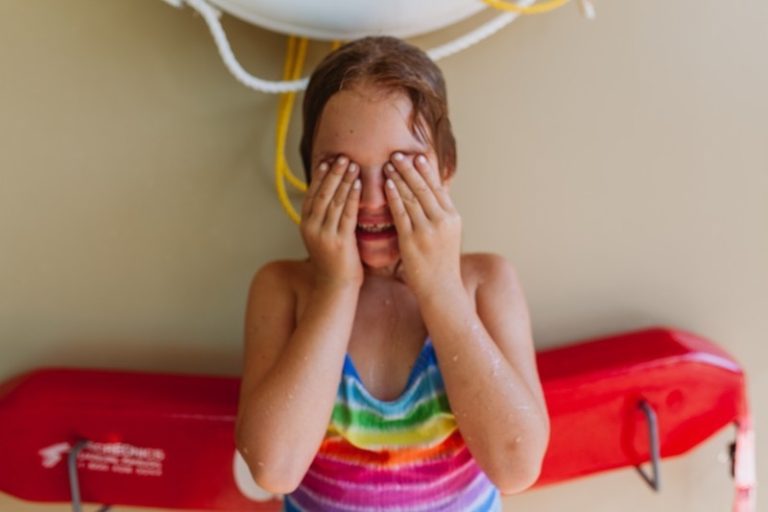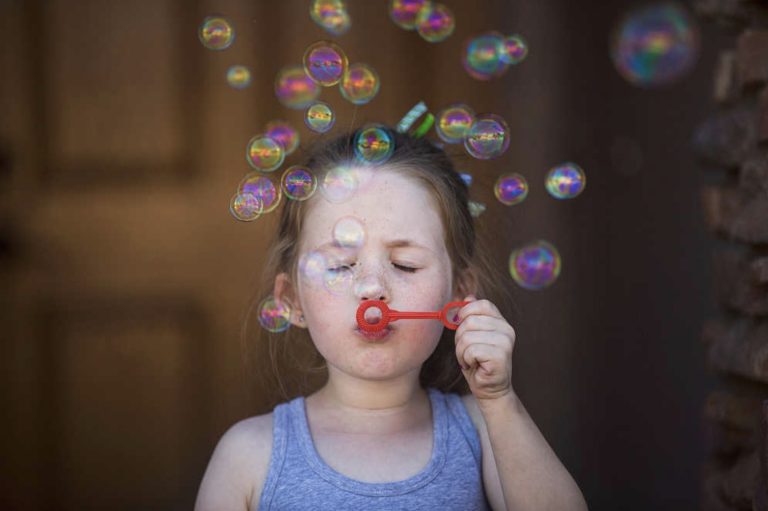This time of year has many unknowns for children and their parents
There are many new changes: new schools, new jobs, new activities. Sometimes all of these changes can send us into a tailspin. Even though all these things are new and exciting, they can be hard too. After all, new things bring unknown outcomes.
For many children, unknown things can feel bad or scary. It seems that when we don’t know what to expect, we prepare for all the bad things that could happen. It makes sense; biologically, our bodies are perfectly wired to avoid danger. So when something frightens or upsets us, our hearts beat, our lungs take in more air, and our muscles tense, preparing for “fight or flight.” We try to process the information, make sense out of it, and stop it from happening. We are primed to keep ourselves safe.
Sometimes, though, we need to take a leap of faith. We need to grab onto some rational thinking. We need to remember (and teach our children) a few core thoughts.

The worst scenario is quite unlikely
Worst things hardly ever happen. Often, we waste a lot of energy waiting for these bad events that don’t even happen. For example, think about last week. What did you worry about? Did it come true? If it didn’t come true, how much time did you spend worrying or thinking about it? Most people have intrusive or negative thoughts from time to time. But it is important to have new ways to challenge these thoughts, so we can let them go. Try to say to yourself, “Worst things rarely happen.”
At one point last week, my dog kept me awake most of the night after he ate something he shouldn’t have. When he ate it, I worried that it may be toxic (which it wasn’t) or that I would have a hard time staying awake at work the next day (Which I didn’t). It may have been more proactive if I had told myself, “He is probably going to be fine, but let me check with his vet first thing in the morning,” or “I’ve been to work after staying up with children. I’ll be ok.” It’s hard to remember those things in the moment, but the more we practice them, the easier they get.

Good things come from hard things
Thich Nhat Hanh, a Bhuddist monk, wrote a book some time ago entitled, No Mud, No Lotus. In this book, he states, “the art of happiness is the art of suffering well.” So maybe, helping our children means teaching them that living well means having some bumps along the way. By helping them see the good that comes from the bad, we are ultimately teaching them self-confidence and resiliency. It’s not easy to have faith that the bad events will pass, and that the good times will be even better because of them. But, if we can model this for our children and talk about it with them, they will ultimately be better able to cope with unknown situations better.
Remind your child that there is good in my world
Even when things are hard or unknown, good things continue. Maybe the good things are simply the beautiful fall weather or cooler temperature. You can help your child remember that s/he has a family who loves her, or electricity at home. You can help her be grateful for a ride to school or clothing to wear. The possibilities are endless. If you have a gratitude practice, keep it going or step it up. All of these things make unknown situations better.

Have some fun with your family
When unknown situations arise, that is the time to find fun activities as a family. You could try physical exercise, a 5K walk for a special cause, or a weekend camping trip. It could be smaller scale, like a game night, a drive in the country, or a visit to see grandparents. It could be practicing serves at the local tennis court, or hitting golf-balls at a driving range. It shouldn’t be so grand that it is stressful, but it should be a noticeably fun activity. Fun times produce more fun. It order to cope with the future, it is important to keep the “fun momentum” going.
Structure can be helpful for managing fears of the unknown
Some of our most stressful times happen when we are bored, as well as anxious. By having a schedule with planned activities, our brain can latch on to these pre-arranged activities, and not fixate as much as the unknown situations ahead. Even having a meal and chore menu can help kids on the last weeks before school. Similarly, scheduling a brief lunch with a friend or a game night at home can give your child something to plan and think about.
In the end, time marches on, and the unknown becomes familiar. We often learn that our fears were not founded, and we find the good in our new circumstances. But the more we can find the good, enjoy ourselves, and stay in the moment, our journey we will be more pleasant and gratifying. (Which is sort of the point).
“You’ve got to take the good with the bad, the happy with the sad”
Unknown
![]()
